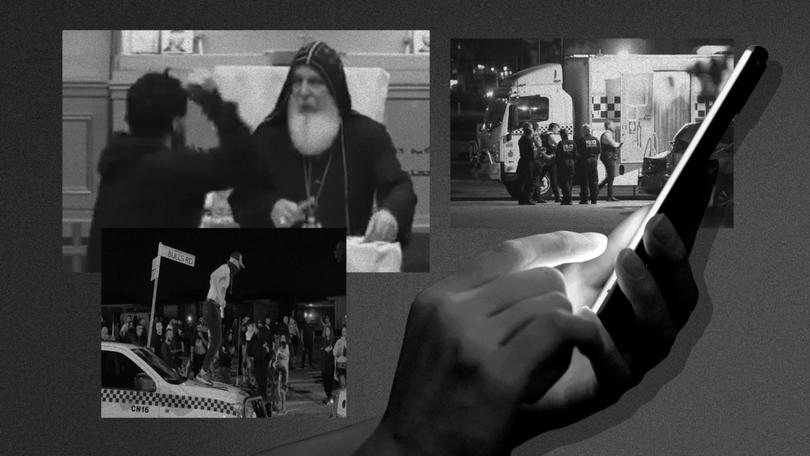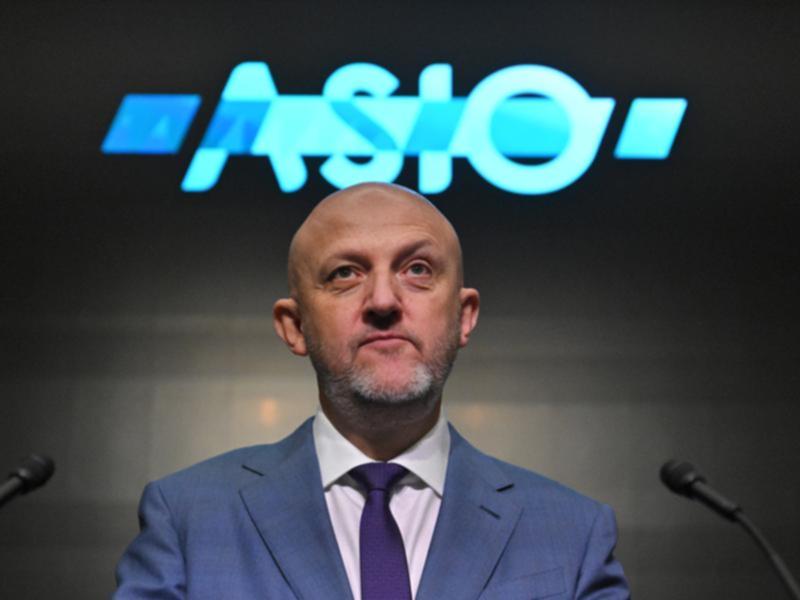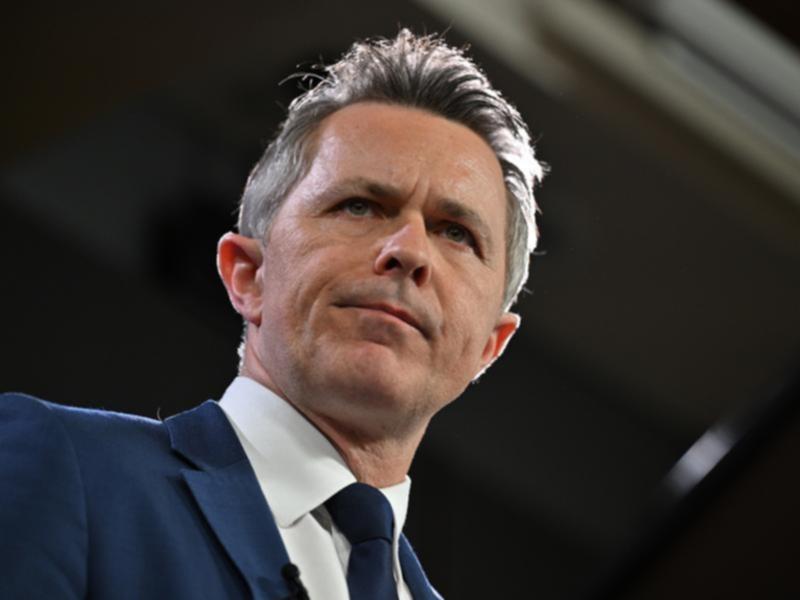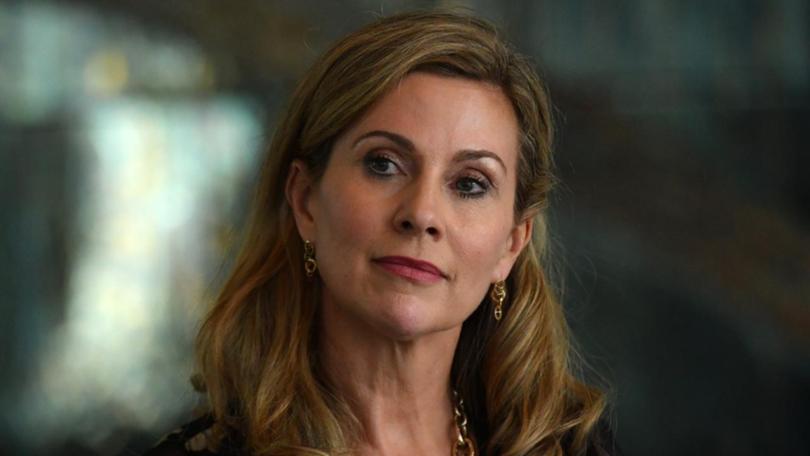ELLEN RANSLEY: ASIO, psychologists say Australia has a complex task ahead to stamp out youth radicalisation
ELLEN RANSLEY: Terrorism no longer fits a clear-cut mould. Islamist fundamentalism is still a threat, but a new era of politically motivated violence is upon us, and it’s becoming increasingly hard to detect.

The hawkish tone of Australia’s top spy boss this week, as he raised the terror threat level for the first time in eight years, was a frank admission that business as usual is dangerous, potentially deadly.
Terrorism no longer fits a clear-cut mould. Islamist fundamentalism is still a threat, but a new era of politically motivated violence is upon us, and it’s becoming increasingly hard to detect.
Different fringe ideologies are converging and thriving online, ensnaring vulnerable and aggrieved people who turn to the internet to find community.
Sign up to The Nightly's newsletters.
Get the first look at the digital newspaper, curated daily stories and breaking headlines delivered to your inbox.
By continuing you agree to our Terms and Privacy Policy.Violence is ensuing, often with little to no warning, and increasingly being carried out by people not on the authorities’ radar. And many of them are young.
Of the eight politically motivated attacks carried out or thwarted in Australia since April, five involved people under the age of 21. The youngest was 14.

ASIO director general Mike Burgess this week said young people were “particularly vulnerable” to a trend that began during the COVID pandemic.
“The internet is a great thing but it also allows individuals to catch on to something and get there in a matter of days, not months or years, and that’s particularly concerning now,” he said.
“You can fall down a rabbit hole of hate quickly.
“It’s a concern how social media can grab people quickly. The internet can grab people quickly and hurt young brains which are not fully formed.”
What’s becoming clear is that only by addressing the many factors that lead to youth radicalisation, can the threat be minimised.
Experts admit it won’t be easy, and will require governments to do their parts, schools to step up, parents to have difficult conversations, and social media companies to fall into line.
All of that is easier said than done.
The National Children’s Commissioner has put forward one solution: completely redesign how the country’s education and health systems interact.
Anne Hollonds warned unless something drastic changes to the way the country’s “early warning systems” operate, the risk won’t go away.
“The places that would be able to identify and support these (at-risk) kids are largely to be found in the school, but they can’t fix this on their own. They need the help of mental health professionals, but they don’t work well together,” she told The Nightly.
“They currently operate separately, and we need to look at integration... If a kid drops out of school, they’re invisible to the education system. Unless we address the failures of those early warning systems, then we won’t be able to prevent this kind of problem.”
She also called for child safety and children’s wellbeing to be elevated to a National Cabinet priority, warning unless there is greater government accountability and a stronger focus on primary prevention rather than deterrence, “we’ll still be having the same conversation in 10 years”.

Education Minister Jason Clare said the Federal Government was committed to reforming the school system to “help kids catch up, keep up, and finish school”.
He said the reforms included phonics and numeracy checks, and catch-up tutoring to find students in need of additional support.
“It’s also about investing in more counsellors and mental health workers because we know kids that have mental health issues are less likely to be at school and more likely to fall behind,” he said.
“There are no blank cheques here. I want to invest billions into our public schools and I want to make sure that money makes a difference to the kids who really need it.”
The Government more broadly is, through a newly established youth and mental health advisory group, working with experts from across youth services and public policy to focus on the “nexus” between young people, radicalisation and mental health.
“In February 2024, the Australian Government convened a Ministerial Summit on Youth Radicalisation, which confirmed the importance of young people in solutions, and agreed a whole‑of-nation approach is needed, including engagement with partners in health, social services and education,” a home affairs spokesperson said.
Psychologists say the youth mental health “epidemic” is compounding problems, especially when paired with an evolving social media algorithm that preys on young people.
Carly Dober, a director of the Australian Association of Psychologists, said it was more often boys and young men who fall into online radicalisation because they were already vulnerable as they searched for their place in society.
“Masculinity is being questioned and redefined, and some young men and boys don’t really know where that leads them,” she said.
“Many young men and boys didn’t have father figures in their home, or the father figures they had had very traditional and regressive ideas about masculinity, their friends and peers might also have the same views. And some particular online content then might further radicalise them into these regressive and very traditional fixed views, all of which can be very confusing.
“It leaves young men and boys feeling marginalised or isolated.”
At the crux of the issue is the lack of regulation around the internet, particularly social media and gaming platforms, which leaves it open to exploitation.
It’s no secret that violent extremists are weaponising technology such as live-streaming, algorithms and emerging generative AI, to promote or share harmful material and radicalise as many people as possible.
Ms Dober said while social media played a vital role in the lives of young people, the current algorithm was “not helpful”.
“We know that the social media algorithm feeds people, and young people, more content that is more extreme to keep them hooked because their business model is just based on ad space and increasing revenue. That means the amount and quality of information that young people have access to can be so different, and it can be very unhelpful,” she said.
“Social media companies really need to do far more in regulating the material they host on their platforms ... their own internal research shows the companies know that their products do harm young people.
The eSafety commissioner Julie Inman Grant is particularly concerned with the lack of responsibility from social media companies.

It’s why she sent transparency notices to Google, Meta, X, WhatsApp, Telegram and Reddit in March, in a bid to understand what the companies are doing to “protect Australians from terrorist and violent extremist material and activity”.
She lamented companies hadn’t volunteered the information, and said that showed why regulation was required.
“This shows why regulation, and mandatory notices, are needed to truly understand the true scope of challenges, and opportunities to make these companies more accountable for the content and conduct they are amplifying on their platforms,” she said.
Ms Hollonds wants online gaming to be just as much of a priority as social media, given so many young men and boys turn to it when they feel ostracised.
“My understanding is that online gaming is one of the ways that these kids (being radicalised) are targeted,” she said.
“There needs to be better regulation. This is something that’s very difficult for parents to fend off all on their own.”
Experts and agencies say parents can’t be afraid of having tough conversations with their children.
Mr Burgess this week agreed that parents have a role to play in ensuring their children aren’t consuming harmful material online.
“Parents should seek to be aware of what their children are consuming online, but young adults — they’re adults — have got to make their own decisions,” Mr Burgess said on Monday.
“But perhaps having a conversation about what they’re looking at online, but noting they’re adults they’ll make their own decisions.”
Ms Dober said while part of being a young person was trialling new identities, parents needed to be “clued in”.
“To understand what actually their young people are watching and content they’re viewing, and to be able to provide open conversations with them about why this thing may or not be true, may or not be helpful, and where their views and ideas about identity might come from,” she said.
“It’s also really important for young men and boys to be exposed to positive, masculine messaging and people so that they can see there isn’t just one way to be a male.”

